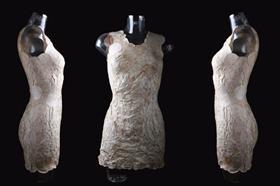
Leather shoes, belts and handbags made from discarded fruit. Dresses made from mushrooms. No, not the latest attempt to bag a modern art prize, but real suggestions put forward by a new project in the Netherlands that aims to make the fashion industry more sustainable.
With the green lobby now very much à la mode when it comes to fashionistas, that growing consumer demand for better environmental stewardship could present new opportunities for the fresh produce business itself to boost its own sustainability credentials, specifically by supplying recyclable substances that can be used instead of raw materials like plastics or cotton.
That’s certainly the view of Kim Poldner, assistant professor and research associate of management studies, who coordinates the Circular Fashion Lab at Wageningen University & Research in the Netherlands.
The lab encourages students at the university to collaborate with designers on clean, sustainable clothing. For instance, fruit waste has been identified as a potential substitute for leather.
At an upcoming exhibition in Arnhem called State of Fashion, the results of those collaborations will go on public display for seven weeks.
“The textile industry is only second to oil when it comes to generating pollution,” Poldner notes. “Wageningen is working on a more sustainable production chain, from the raw materials to the end consumer.”
The international fashion industry has made efforts in the past to improve its impact on the world around it, for example by developing sources of organic cotton, but according to Poldner the time has now come to take a bigger step towards circularity.
Students at the lab are apparently researching fruit waste as a possible substitute for leather, as well as analysing other renewable resources such as mushrooms, a source of the thread-like material mycelium, and hemp. A dress made from mushrooms, WUR noted, could easily be composted.



